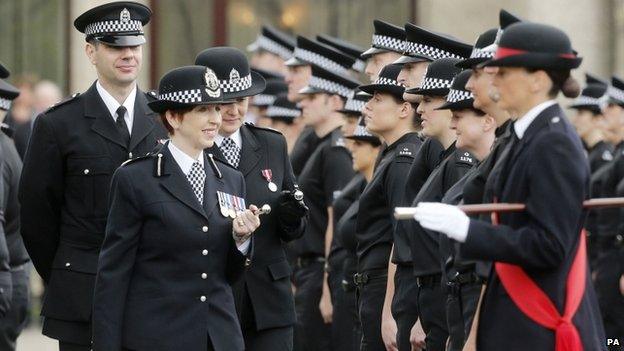Gwent Police fast-tracks civilians to become investigators
- Published

The new recruits started their training this week
Crimes will be investigated by civilians who are being fast-tracked by Gwent Police to help ease workloads.
They will have powers similar to detectives who have worked their way through the ranks but will not be able to make arrests.
The force denied it was policing "on the cheap" and said the first 15 trainees would play supporting roles.
The National Police Chiefs' Council said the move would expand skills, knowledge and expertise.
Other forces, include the Metropolitan Police, already run similar schemes.
"The police staff investigators won't be replacing detectives," said Det Ch Supt Nicky Brain, head of crime and protective services at Gwent Police.

Det Ch Supt Nicky Brain said more support was needed for detectives who are under strain
"There's a national shortage of detectives and police forces around the country are looking for innovative ways to support our detectives.
"It will be purely a support network for our detectives."
Det Insp Gareth Jenkins, who is running the course, said the new investigators would be trained over two years, initially from a classroom and then on the job.
He added: "It's the same programme used to train police officers.
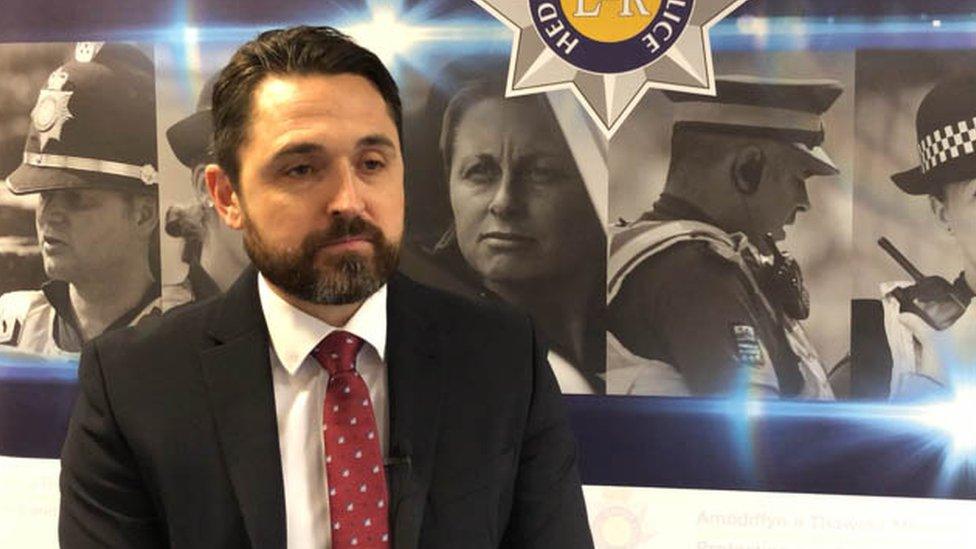
Det Insp Gareth Jenkins said the trainees would eventually be able to take on their own cases
"While they won't have the same powers as a warrant officer, it's enough for them to perform the role of a detective constable."
Rachel Varney, 36, from Cardiff, used to work in recruitment at a financial services firm before taking up one of the new posts.
"This is a completely different challenge," she said. "I've always been interested in working in police services.
"I want to be part of a team that can make a difference in the community. It's a meaningful job."
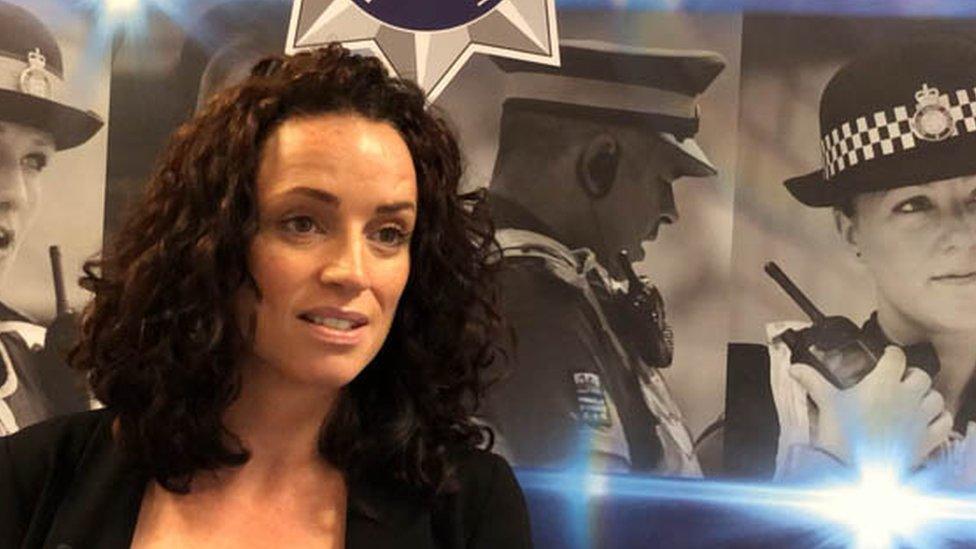
Rachel Varney said she was there to "get stuck into investigations"
She said not needing to make arrests was "attractive", as did 47-year-old Yvette Ransom from Blaina, Blaenau Gwent who has spent the last 16 years supporting victims of domestic abuse.
She added: "I just think it's a fantastic opportunity to get that direct entry. It'll be a privilege to support victims and to see that side of the investigation.
"Everybody on the course seems to be from a different background with different skill sets and experience."
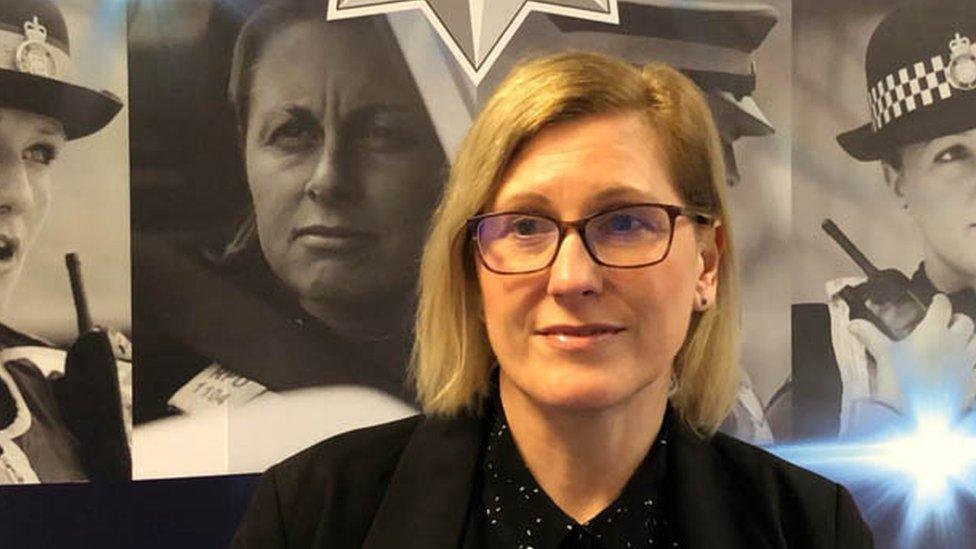
Yvette Ransom said she had lots of experience in the criminal justice system in her previous career
A spokesman for the National Police Chiefs' Council said: "There are many competent and experienced investigators across both the public and private sector that we can employ, alongside officers, to investigate all different types of crime.
"Police forces have been using civilian investigators for many years and they have consistently shown their worth.
"Rather than being concerned about the rise in the use of civilian investigators, we are pleased, as they hugely increase and diversify the skills, knowledge and expertise available to us."
- Published11 June 2018

- Published2 March 2017
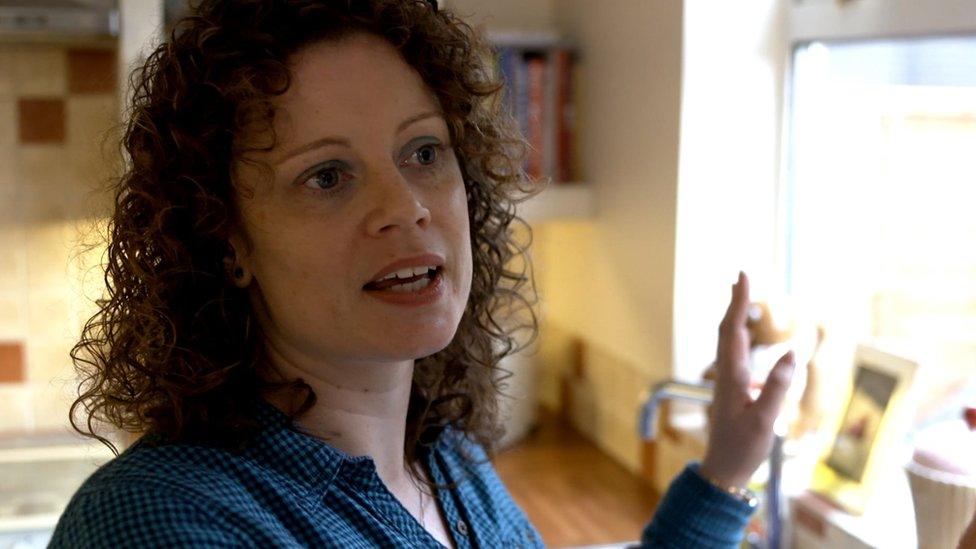
- Published27 March 2019
